Your podcast goes way beyond the mere recorded audio file. When you’re looking to reach as many listeners as possible, there are a lot of things you need to consider. One of the most important aspect of your podcast is the text-based part – Each show and episode needs to have a good title, and especially podcast descriptions (also known as Show Notes).
If you’re starting a new podcast, you might find it especially difficult to attract listeners at first. You’ll need to work hard to encourage listens/subscriptions and keep users engaged.
Fortunately, you can write compelling podcast descriptions to improve your online visibility. That way, you can gain new listeners and grow your audience.
In this post, we’ll take a closer look at podcast descriptions and why they’re important. Then, we’ll share five tips to help you write a powerful description for your show. Let’s get started!
An Introduction to Podcast Descriptions
A podcast description is like a summary of your show. Similar to the blurb of a book or a synopsis for a movie, it’s your chance to encourage users to have a listen.
However, it’s important to understand the difference between your podcast description and your show notes. The latter is what you’ll use to describe each of your episodes, include information and links for individual episodes etc. Meanwhile, your podcast description summarizes your show, in general:
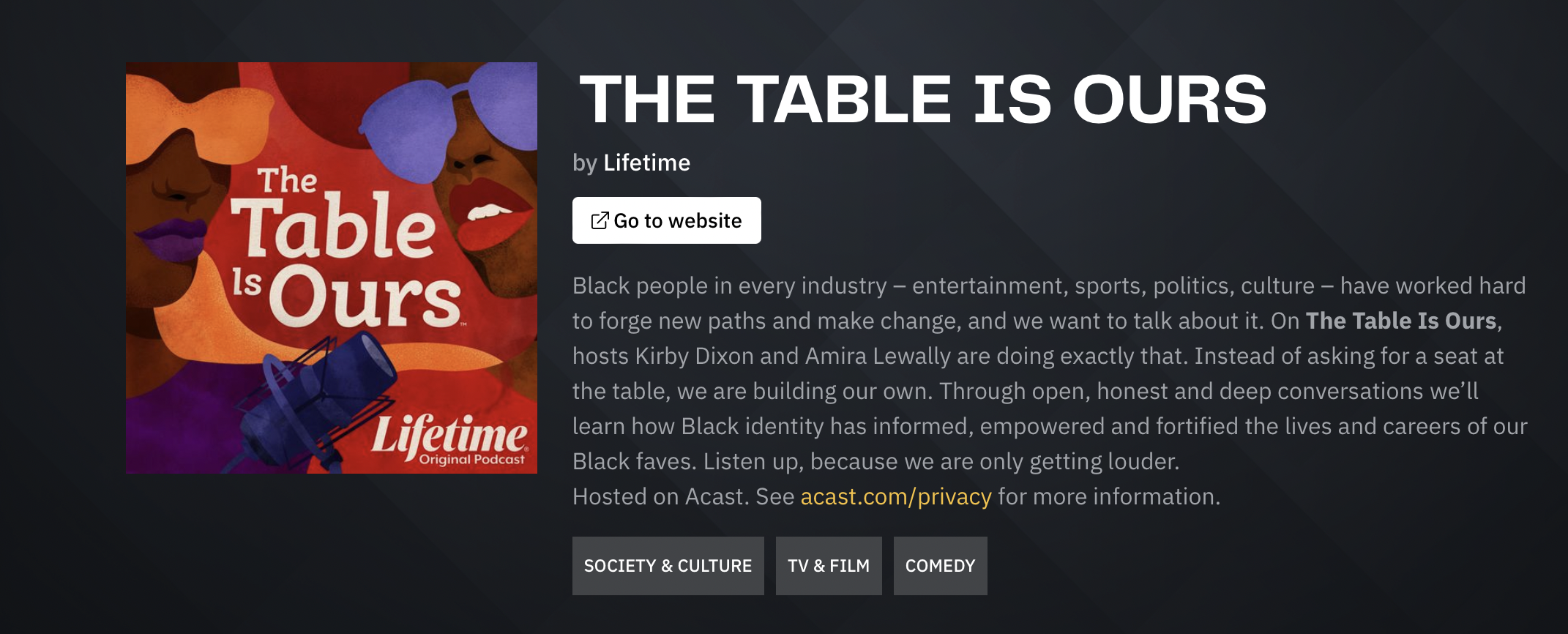
There’s a lot of information that you can include in your podcast description. For example, you might want to explain the topic of your show or share your background story. You could also add details about your schedule.
This description will show up in RSS feeds and podcast directories. Therefore, you’ll want to make sure that it contains essential information about your show.
Why Podcast Descriptions Are Important
Podcast descriptions can help you attract new listeners. It’s one of the first things people see while browsing for podcasts, alongside your podcast name and artwork. Beyond catching the visitors’ eyes and making a good first impression, these descriptions are really helpful for SEO purposes as well.
A powerful description can help you stand out in podcast directories:

Optimized podcast descriptions is great both for on-platform (Spotify, Apple Podcasts, Google Podcasts etc.) and also improve your visibility in search engines so it’s really a no-brainer to invest time in order to perfect the description. With the right keywords, you can drive more organic traffic to your show and build a larger following.
Another great way to improve your search ranking is to create a podcast website. At Podcastpage, we simplify the process for you:
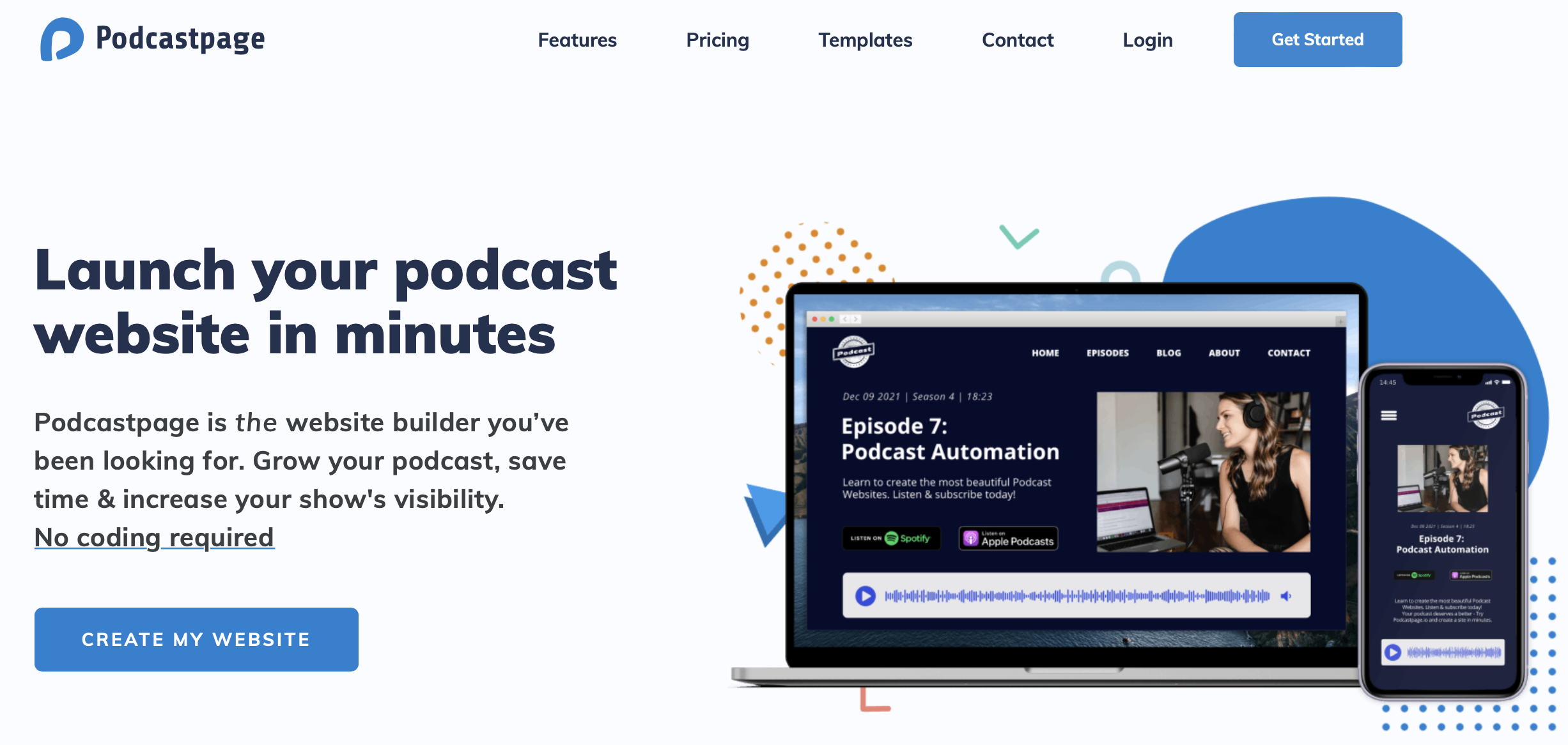
You’ll get access to a powerful drag-and-drop builder. Plus, you can get started super fast with our beautiful website templates.
Our templates are designed to help you grow your audience. You can insert compelling podcast descriptions, add high-quality images, and more. We automatically import all your episodes, podcast description, artwork and information directly from your RSS feed.
You get a great-looking website right out of the box, fully functional and optimized for SEO. This can go a long way for growing your podcast organically, establishing a brand around your show and much more.
5 Tips to Write Great Podcast Descriptions
Now, let’s take a look at five tips to help you nail your podcast descriptions!
1. Keep It Short
You might be tempted to cram in a lot of information in your descriptions. However, bear in mind that most users will just scan through the text. Therefore, it’s best to keep it concise and get straight to the point.
Plus, most platforms (like Apple) have a character limit for podcast descriptions, so you’ll want to make sure that the entire summary is visible:

We recommend that you use a few paragraphs if possible. Keeping it too short wouldn’t be a good idea either. A description that is too long won’t make sense, because people rarely stop and read a super-long description before they try and listen to a new show. Try drafting your description multiple times and getting rid of unnecessary words/sentences. As a general rule of thumb, the summary should contain two to five paragraphs.
Additionally, you’ll want to avoid complex or vague language. Keep it simple and use short sentences.
2. Optimize with Keywords
Keywords are phrases that users enter into search engines to find information. By using them in your podcast description, you can rank for relevant search queries. This will make it easier to attract new listeners.
You can find appropriate keywords using a tool like Google Keyword Planner:
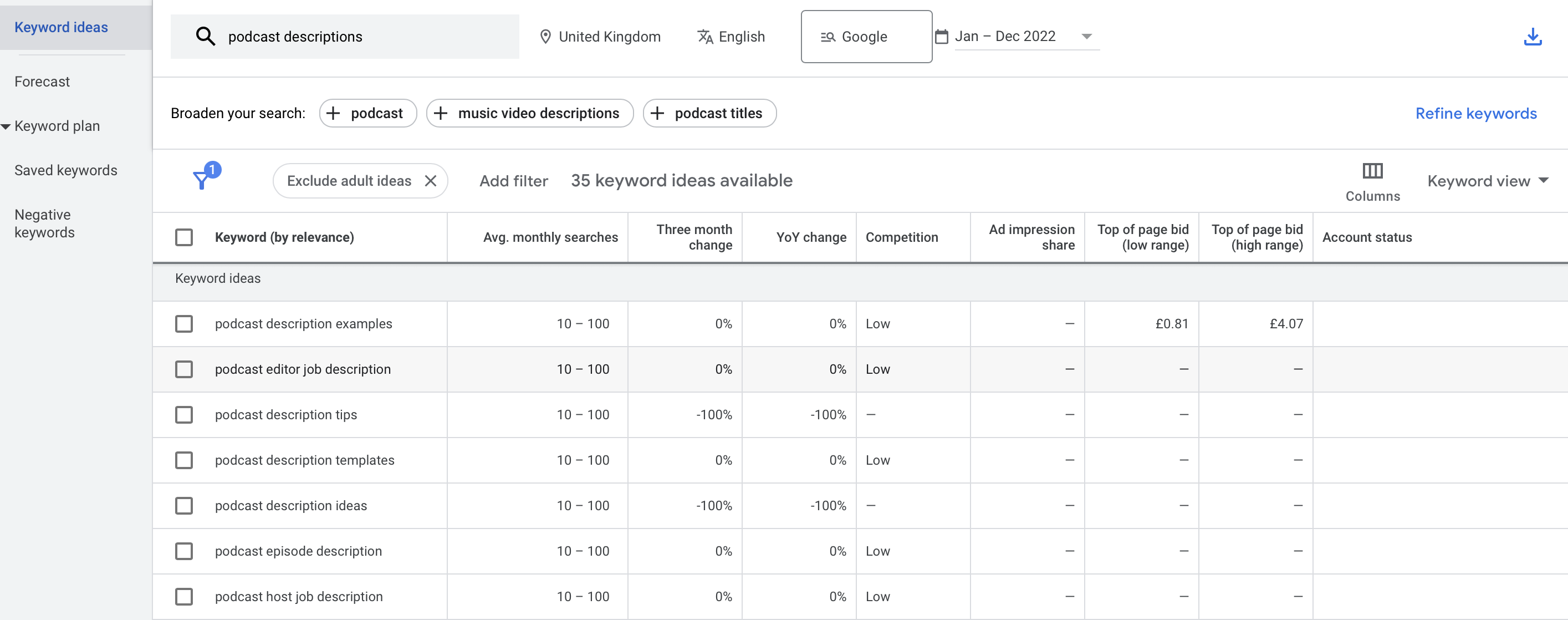
While you might prefer to target popular search terms, you might have more success with long-tail keywords. These tend to be more specific and therefore have lower search volumes. However, since the competition for them is low, it gives you a better chance of ranking on the first page of Google.
When using this strategy, you’ll want to make sure that you’re not overusing your keywords. It’s best to stick to two primary keywords and only include them in your content where it feels natural.
3. Appeal to Your Audience
When writing your podcast description, try to speak to listeners directly. Addressing their interests and pain points can make you appear more relatable.
Moreover, you’ll want to show users what they can gain from your show:
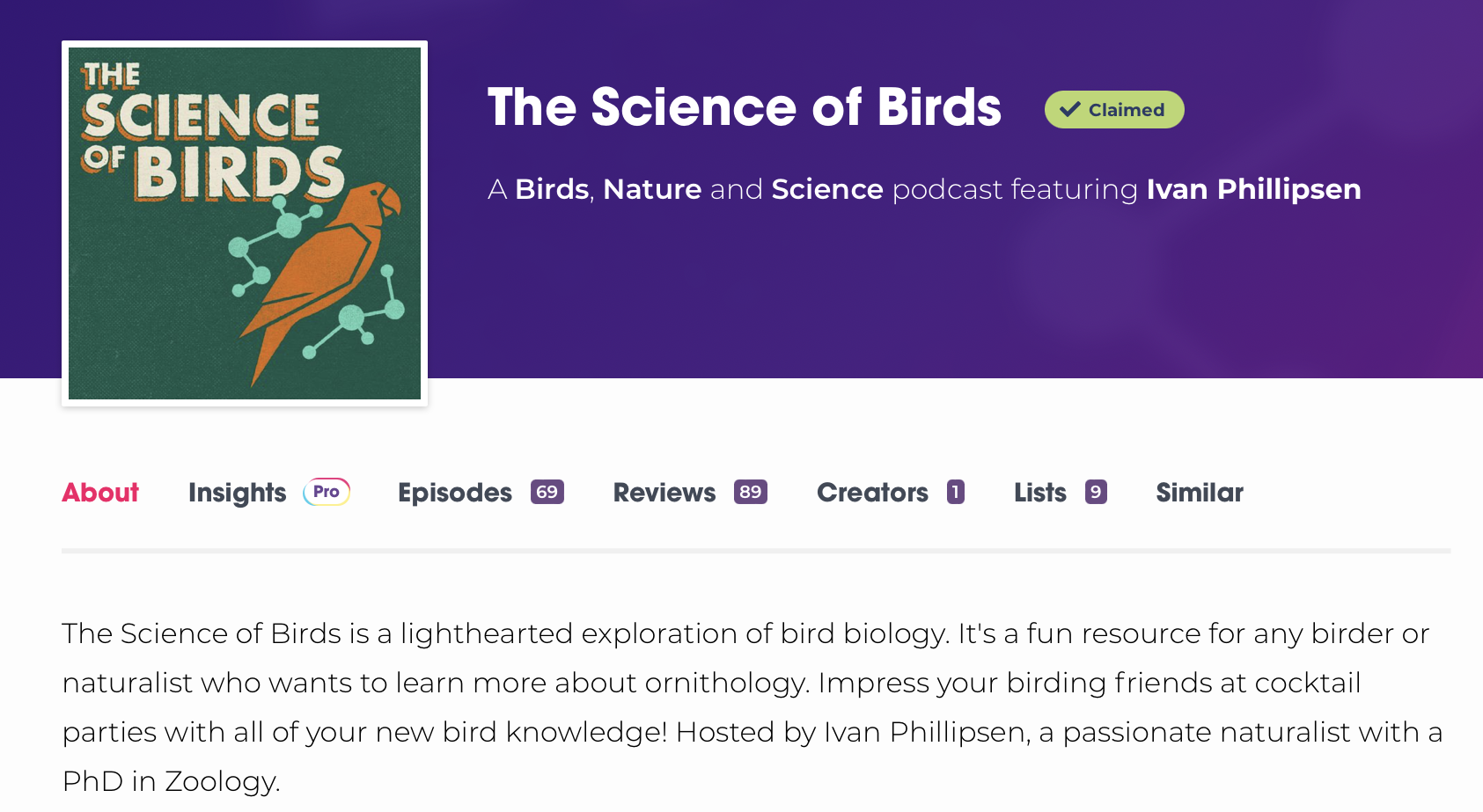
For example, if you’re a comedian, your target audience wants to be entertained. Meanwhile, if you run an educational show, your listeners want to learn. The benefits should be outlined in your description.
Additionally, you’ll want to use language that appeals to your target audience. If your listeners are looking for an entertaining show, you’ll need to use fun and humorous language. If you have an educational podcast, you might want to set a more informal, authoritative mood.
4. Include Key Details
A podcast description should convey the most important information about your show. This includes your schedule. Do you post weekly, bi-weekly, or monthly?
You can also show readers where they can find more of your content. For instance, you can include links to your YouTube channel, social media accounts, or your own podcast website:
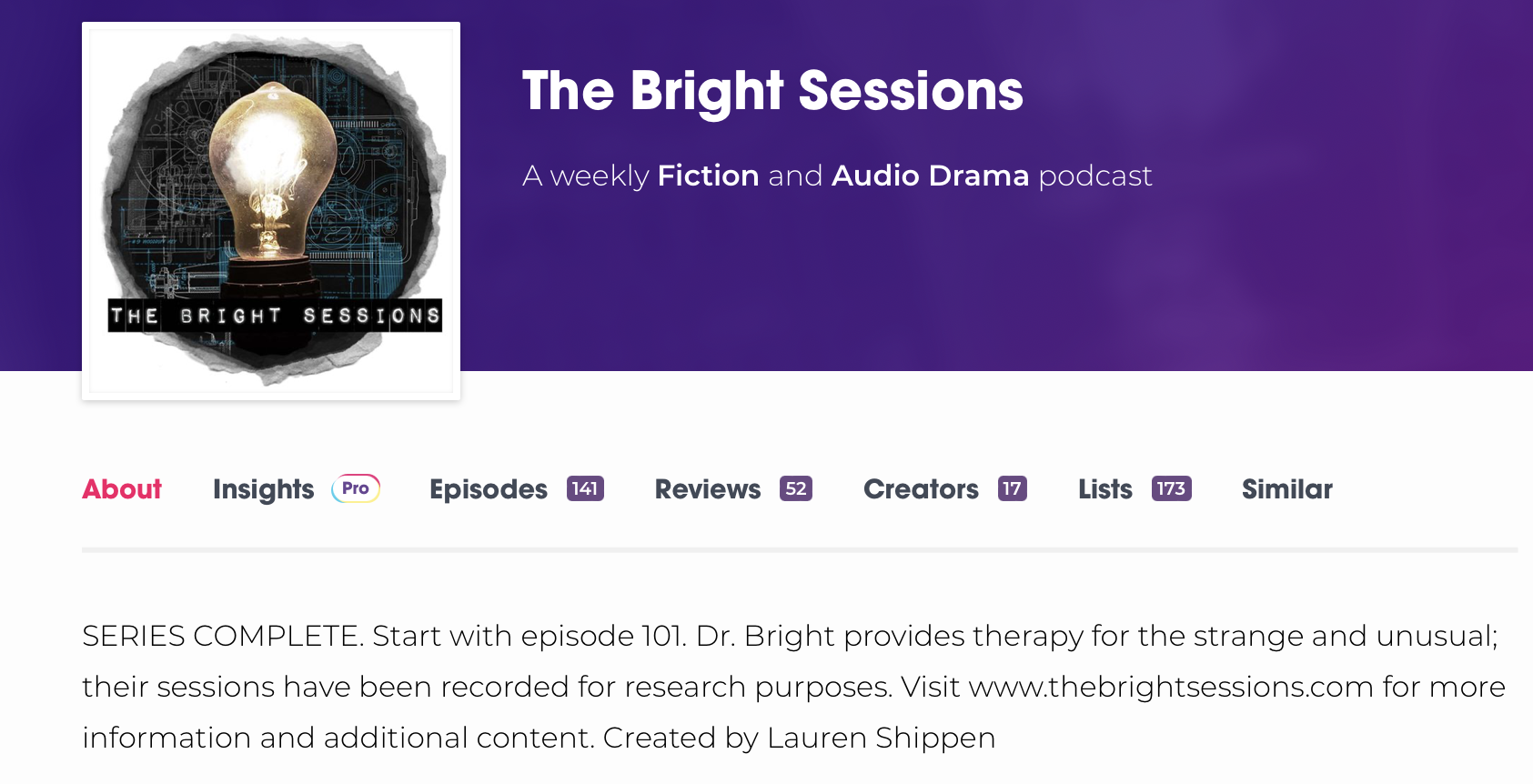
This gives users the chance to learn more about you and your background. It also creates a backlink to your site, which is great news for your SEO strategy.
Additionally, you might want to state the format or structure of your show. Perhaps you interview industry experts or answer listeners’ questions.
5. Highlight Your Expertise and Personality
Your podcast description presents an opportunity to highlight your expertise and convey your personality. For example, if you’re trying to establish credibility and authority, it makes sense to mention your experience in the industry:
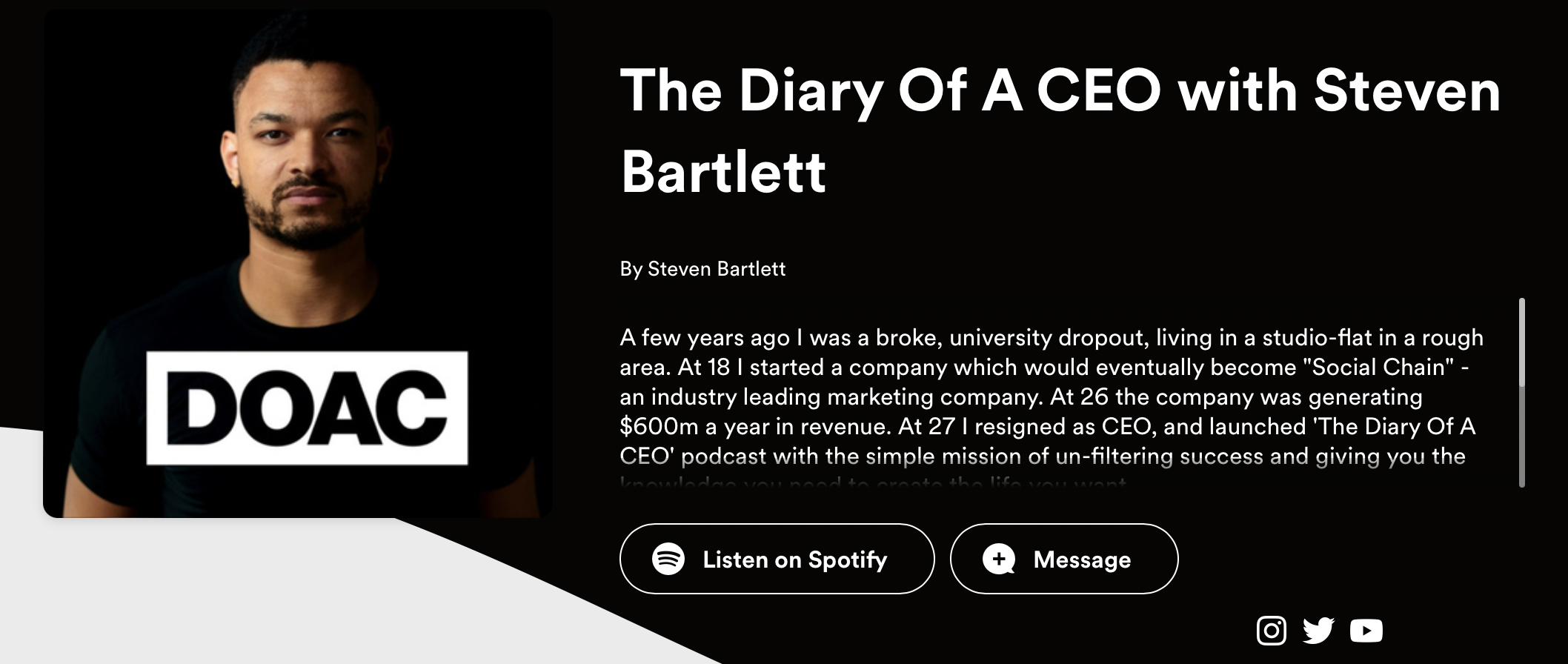
Plus, as the show host, it’s important to allow listeners to get to know you. This way, it’s easier for them to connect with your brand and become a part of the community. It can also help you build meaningful relationships with your audience and boost brand loyalty.
Conclusion
It can be difficult to encourage users to check out your podcast. Fortunately, you can write persuasive podcast descriptions to boost your visibility in search engines and grow your audience.
To recap, here are five tips to write great podcast descriptions:
- Keep it short. The sweet spot is 2-5 paragraphs. Keep it relevant and well written.
- Optimize with keywords.
- Appeal to your audience.
- Include links to your podcast website, social profiles etc.
- Highlight the hosts’ expertise and/or personality to try and attract more listeners.
One of the easiest ways to gain more visibility in search engines is to create a podcast website. With Podcastpage, you’ll get access to beautiful templates, automated episode imports, and a customizable audio player!



